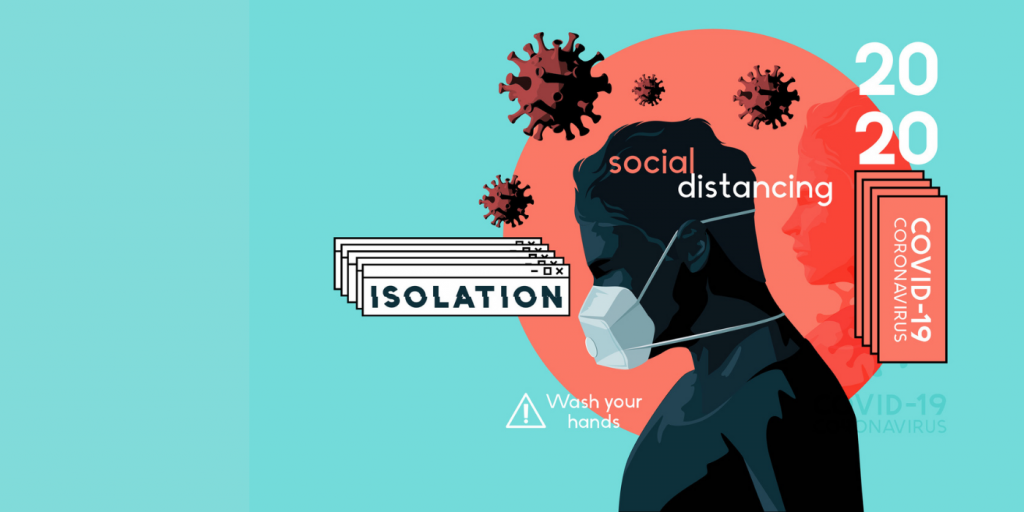Continuing research to measure the impact of COVID-19 on self-harm and suicidal behaviour
| 29 March, 2021 | Emily Eyles |
|

|

As the effects of the pandemic continue to affect our everyday lives, a multi-institutional team is exploring the tangible impact of COVID-19 on mental health, self-harm and suicidal behaviours. In this blog, Emily Eyles discusses the key findings and challenges with the project so far, before considering the benefits of publishing a Study Protocol before a Living Systematic Review and the importance of open research.
I am Emily Eyles, and I work at the NIHR ARC West in Bristol (UK) as a Research Associate in epidemiology. I have had the benefit of training in many different methods, and my path to working at the NIHR ARC West is perhaps less traditional: my degrees are all in geography, with an interest in social and health inequalities in particular. I really enjoy working at the NIHR ARC West, because we carry out different sorts of research, employing a wide range of methods, that have real world impact and can be implemented fairly quickly. I personally mostly work with quantitative analysis but enjoy conducting all sorts of research, with a particular interest in mental health.
Exploring the impact of the COVID-19 pandemic on self-harm and suicidal behaviour
I was inspired to join this project for several reasons, both academic and personal. I wanted to help with a COVID-19-related project in particular, especially one looking at the mental health impacts that may occur due to the pandemic. I also am interested in Systematic Reviews and how they can be used to expose the evidence base that exists to wider audiences, allowing for the evidence collected to be implemented or improved. Furthermore, I enjoy working with people from different institutions – this project is a Bristol-Swansea partnership, with other wider partners as well.
So far, we have not seen clear evidence of an increase in self-harm and suicidal behaviour, although a drop in service use was observed in some studies. However, there is often a lag in the collection and reporting of suicide data, and the COVID-19 pandemic is still ongoing. This means that we may see better evidence in future. We noted that improvements in quality in future studies is necessary, and this highlights the advantage of publishing a Living Systematic Review: we can keep people appraised of the evidence as it improves over time, and eventually, we can hopefully draw more meaningful conclusions from these more robust studies. We have several policy briefs and sub-reviews planned, and our work links across the four British nations.
The challenges we mainly encountered were a lack of quality studies in the beginning, but this has and can only improve over time. Further, we sometimes encountered studies we did not have access to, or which were in a language one of the research team did not speak. We managed to request access for several studies, or, our colleagues in other institutions had access. For the language issue, we found people willing to join the team and help us screen and extract data from papers in languages we did not speak, such as Chinese.
Publishing a Study Protocol
Publishing a Study Protocol prior to the review is useful for informing people the research will be published, as well as demonstrating to others potential ideas for study design and analysis.
Being explicit about our methodology also means it is more robust and replicable. It also allows for feedback from reviewers and interested parties before the work is fully undertaken, allowing for adjustments to the study design or analytic strategies.
It also can prevent the duplication of effort, and in my mind, engender new academic partnerships with interested parties who may not be linked to our research group.
The importance of open research
Open research to me is very important. I strongly believe knowledge should be freely available to those who want to access it. I think society can only benefit from easy access to research.
Further, this sort of platform easily allows Living Systematic Reviews, and as the COVID-19 pandemic is an ongoing and evolving situation, a Living Systematic Review was the clear choice given our desire to publish the evidence we found, and continue to update it with the latest research.
Open peer review is an intriguing concept to me, and I think supporting this sort of platform allows us to experiment and see how it works. I do appreciate all the helpful comments the reviewers have given us on both the Study Protocol and the Living Systematic Review.
Read the Study Protocol: The impact of the COVID-19 pandemic on self-harm and suicidal behaviour: protocol for a living systematic review
Read the Living Systematic Review: The impact of the COVID-19 pandemic on self-harm and suicidal behaviour: a living systematic review

|



User comments must be in English, comprehensible and relevant to the post under discussion. We reserve the right to remove any comments that we consider to be inappropriate, offensive or otherwise in breach of the User Comment Terms and Conditions. Commenters must not use a comment for personal attacks.
Click here to post comment and indicate that you accept the Commenting Terms and Conditions.